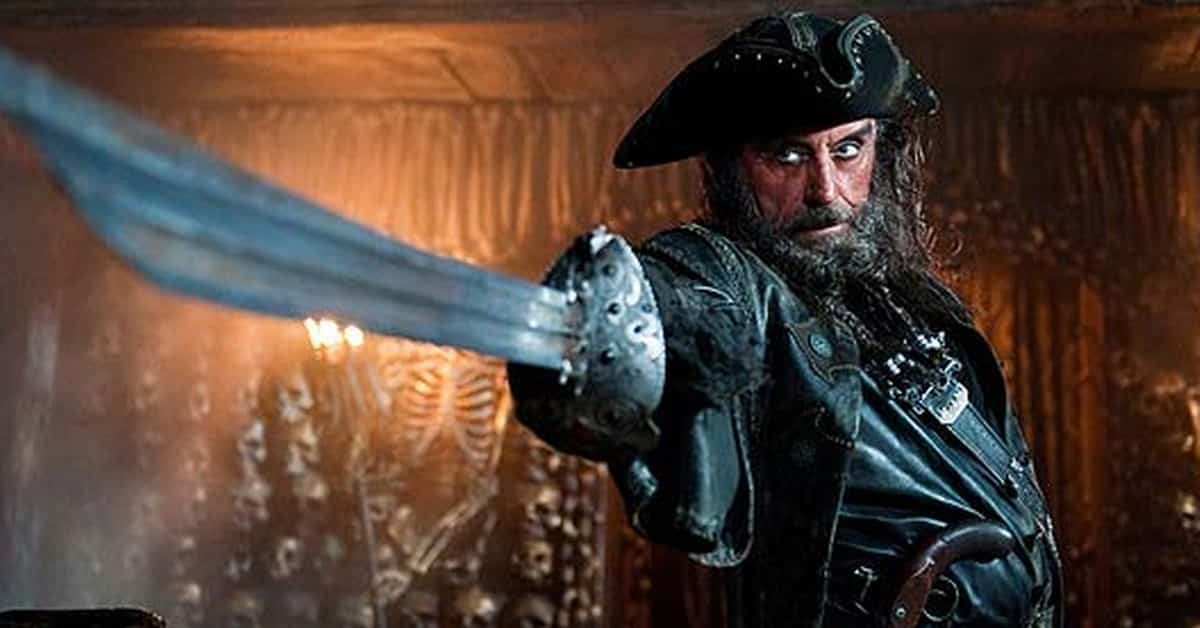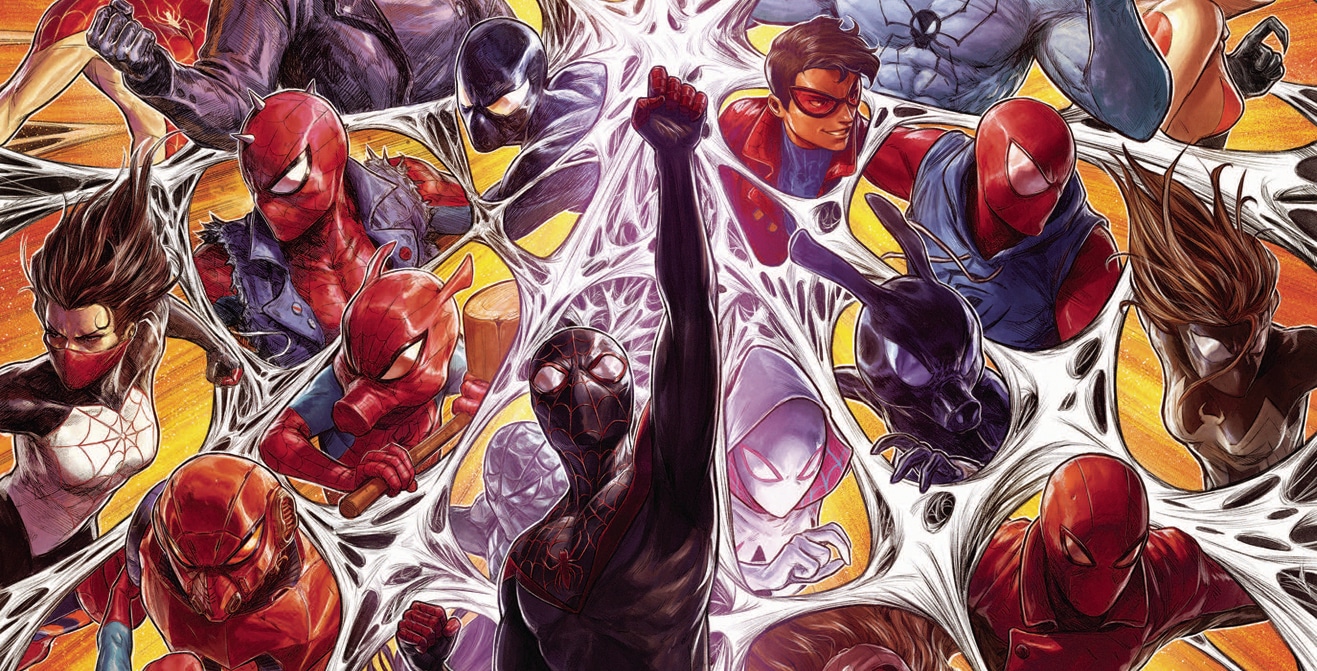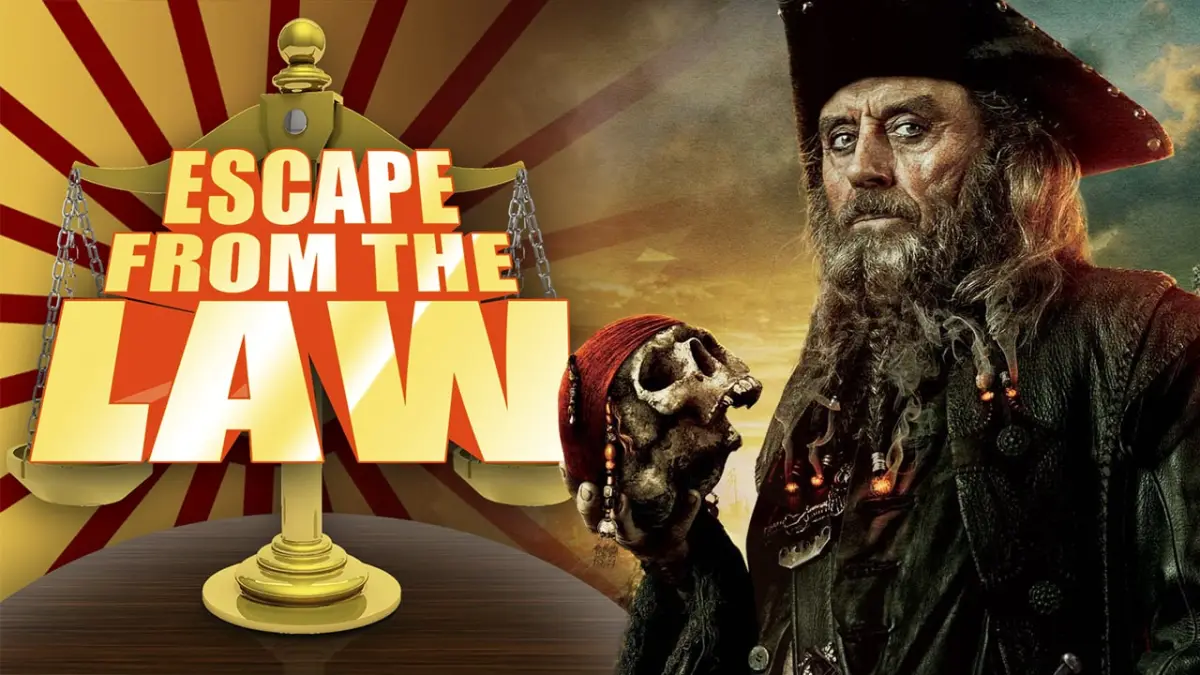Blackbeard is one of the most famous and feared pirates of all time. Like all legendary pirates of old, he pilfered, he plundered, and he struck fear into the hearts of his enemies. Blackbeard died 300 years ago, but thanks to a recent Supreme Court decision, his legacy lives on.
Longtime readers of this column know that I write about copyright on a somewhat frequent basis. This isn’t a coincidence. Copyright law explicitly controls and limits the kinds of content that can be created, and it controls and limits how content is consumed. You want Spider-Man in the MCU? That’s copyright. You want to play video games over the internet? Copyright. You want J.K. Rowling to relinquish creative involvement with Crimes of Grindelwald or YouTube to stop demonetizing your clip show content? You get the idea. But copyright law has a huge blind spot — a blind spot that only came to light because of Blackbeard.
Most people know that copyright law makes it illegal to copy, distribute, or adapt a copyrighted work without the author’s permission, and that copyright infringers can end up with hefty fines or even jail time. But last week, in a unanimous 9-0 decision, the Supreme Court held that state governments are immune from liability under the Copyright Act.
Here’s how it happened. In 1717, Blackbeard captured a large ship, La Concorde. Since that name wasn’t nearly cool enough, Blackbeard renamed the ship Queen Anne’s Revenge and transformed it into a fear-inspiring warship, complete with 40 cannons and over 300 crewmen. Over the course of the next year, Blackbeard made good use of the ship — he plundered vessels on the high seas, built a fearsome reputation, and, in one of his most infamous moves, blockaded Charleston harbor and held many of the harbor’s inhabitants for ransom. Just a few months later, the ship was destroyed after Blackbeard ran it aground off the coast of North Carolina. (Historians are split on whether Blackbeard intended to destroy the ship.)
Fast-forward centuries to 1996, when a marine salvage company discovered the shipwreck and hired videographer Frederick Allen to document the recovery. Allen worked for over a decade to take pictures and videos of the recovery effort. What he didn’t realize is that state governments are more coldhearted than any pirate of yore. In what can only be described as a delightful irony, the state of North Carolina plundered Allen’s documentation of the wreck and posted it on the state’s website without permission. Allen objected and eventually entered into a $15,000 settlement agreement in which the state promised not to infringe his copyrights again.
But there is no honor among thieves pirates states, and about a year after North Carolina promised not to infringe Allen’s copyrights, the state passed “Blackbeard’s Law,” which stated that “all photographs, video recordings, or other documentary materials of a derelict vessel … shall be a public record,” and that Allen’s agreement with the state was “void and unenforceable.” In response, Allen sued North Carolina in federal court for violating the Copyright Act. The case worked its way up to the Supreme Court, which held that states are immune from liability under the Copyright Act. In other words, Allen, like all of Blackbeard’s victims, had no recourse — the state could (and can) steal his work, and there’s nothing he can do about it.
A few months ago, I wrote about Disney’s “cultural monopoly” and suggested that state governments could adopt historical preservation laws that would allow states to copy and preserve copyrighted works so that they would be accessible to future generations. At the time, I figured that the government’s options might be limited by the Takings Clause of the Fifth Amendment, which prevents the government from taking private property. But the Supreme Court’s decision suggests I might have been mistaken.

When it comes to copyrights, state governments apparently have free rein to make copyrighted works freely available to the public. In fact, the Supreme Court stated this explicitly in its decision, noting that, under its decision, “Walt Disney Pictures could (not) sue a State … for hosting an unlicensed screening of … Pirates of the Caribbean.” The Court also hypothetically acknowledged earlier the possibility that states could use movies as a source of revenue by “charging $5 … to run Rocky, Marvel, whatever, Spider-Man, and perhaps Groundhog Day.”
But the Supreme Court didn’t fully appreciate what it means for states to be immune from copyright liability. State-sponsored screenings only touch the surface of what’s possible. Because of the Supreme Court’s ruling, states can make adaptations of popular works. This means we could see state-specific versions of our favorite characters. Spider-Man fans will remember 2014-2015’s “Spider-Verse” crossover, which featured countless Spider-Men including Spider-UK (Billy Braddock) and Indian Spider-Man (Pavitr Prabhakar). Now, imagine the same thing, except instead of one or two country-specific Spider-Men, we have 50 state-specific Spider-Men.
For example, Missouri’s version of Spider-Man might have a campy costume that incorporates the arch, while Oregon’s Spider-Man might have a suit made of hemp. Or we might see a new origin story for Captain America, where he grew up in South Carolina and fought for the confederacy (Introducing Captain Confederate). Or a story where Tony Stark becomes Coal Man to promote West Virginia’s largest export. Or a sequel to Harry Potter where Harry studies abroad for a year in Florida (“Fluffy’s nothing compared to a Florida Gator!”). Or a spin-off of Friends where the whole gang moves to Michigan to play Euchre and watch ice hockey. The possibilities are endless, and almost all of them sound terrible.

And before you say that this is off the wall or impossible, keep in mind that Marvel already gave each state its own Avenger in promotion of its 2016 U.S. Avengers series. And lest we forget, it wasn’t that long ago that each state issued a state-specific version of the quarter. If they can do it to quarters, they can do it to superheroes. The Supreme Court opened a Pandora’s box, and it’s only a matter of time before states realize just how much power they now have at their fingertips.
Blackbeard’s pirate resume is beyond reproach. In his day, he was one of the most feared, respected, and formidable pirates in the world. Alas, it seems Blackbeard’s reign is coming to an end. It may have taken 300 years, but in one fell swoop, the Supreme Court has given the states everything they need to execute piracy on a scale never seen before. Watch out Marvel. Watch out Warner Brothers. Watch out Jack Sparrow. North Carolina is coming — and North Carolina is as ruthless as they come.





